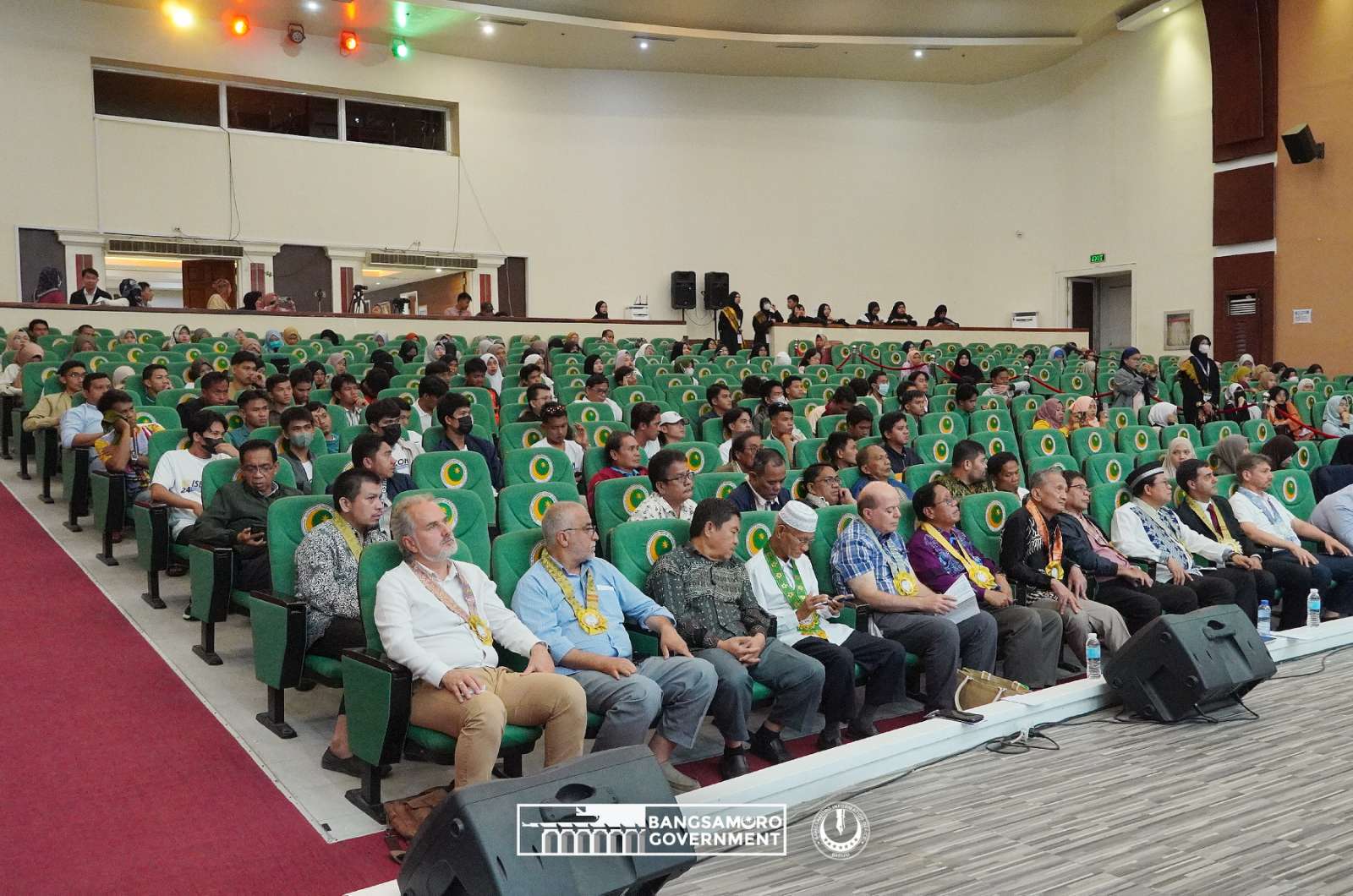
Bangsamoro leaders, industry experts, academe, policymakers and non-government organization gathers during the Islamic Economy and Islamic Ethics and Islamic Financial management Conference (ISECON) on August 1-2, 2024 at Shariff Kabunsuan Cultural Complex (SKCC) in Cotabato City. (Faisal Camsa Jr./BIO)
COTABATO CITY—The Bangsamoro Government hosted a groundbreaking Islamic Economy, Ethics, and Financial Management Conference (ISECON), to explore the latest trends, innovations, and opportunities in Islamic Finance.
Held on Aug. 1-2, here at Shariff Kabunsuan Cultural Complex (SKCC), the event aimed to foster dialogue, knowledge sharing, and partnerships that will contribute to the growth and development of Islamic finance in BARMM.
Organized in collaboration with the Bangsamoro Turkish Educational Academy (BTEA), the conference brought to together industry experts, leaders, policymakers, and stakeholders.
Ministry of Agriculture, Fisheries, and Agrarian Reform (MAFAR) Minister Mohammad Yacob emphasized that the conference would serve as a platform for discussions and networking opportunities among participants.
“The BARMM Government and BTEA want to educate and empower the Bangsamoro people, including the young generation, who are committed to advancing the practice of Islamic finance,” said Yacob, who is also the Chairperson of the Technical Working Group on Islamic Finance.
He also pointed out that Islamic Economy and Ethics Conference in BARMM is an important milestone in the region’s commitment to promoting economic growth and financial stability through principles rooted in Islamic ethics and values.
“At this conference, we will discuss challenges related to the implementation of Islamic finance as well as the potential collaboration between Muslim countries. It also provides a good platform to discuss and clarify important questions and problems of the Islamic world,” said Yacob.
The agenda of the conference covered a wide range of topics, including: Fundamental Principles of Islamic Economics; Historical Development of Islamic Economics in the Modern Era; Islamic Microfinance and the Principles of Cooperation; Islamic Social Finance (Zakah and Waqf); Ethical Principles of Islamic Economics; Islamic Financial Institutions in the World; Islamic Finance and Capital Markets; and Islamic Insurance.
Necmettin Kizilkaya, a professor at Istanbul University in Turkey, stressed that Islamic economics and finance hold significant promise for the development of poor countries.
“We aim to delve into the principles of Islamic economics and finance, analyze current trends, and explore innovative solutions that align with Shariah principles while addressing the complexities of modern economic challenges,” Prof. Kizilkaya said.
One of the participants, Saudia Omar, 24, a business administration graduate with a major in marketing, thanked the current government, including the BTEA, for organizing the momentous event.
“We greatly appreciate the region’s commitment to using Islamic finance as a powerful tool to promote socio-economic progress and empower communities. As new graduates, it is important for us to educate ourselves on Islamic finance,” said Omar.
Overall, as Islamic finance continues to gain traction and recognition as a viable alternative to conventional finance, the BARMM stands poised to capitalize on its potential for driving economic development, alleviating poverty, and promoting financial inclusion across the region. (Johaira Sahidala/BIO)







